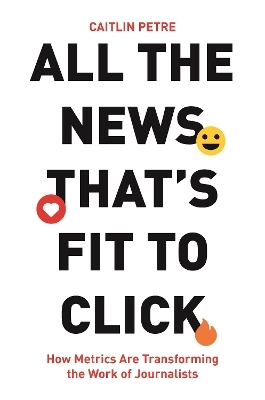
Metaheuristic Computation with MATLAB®
Seiten
2020
Chapman & Hall/CRC (Verlag)
978-0-367-43886-9 (ISBN)
Chapman & Hall/CRC (Verlag)
978-0-367-43886-9 (ISBN)
The main purpose of this book is to provide a unified view of the most popular metaheuristic methods. Under this perspective, it has presented the fundamental design principles as well as the operators of metaheuristic approaches which are considered essential.
Metaheuristic algorithms are considered as generic optimization tools that can solve very complex problems characterized by having very large search spaces. Metaheuristic methods reduce the effective size of the search space through the use of effective search strategies.
Book Features:
Provides a unified view of the most popular metaheuristic methods currently in use
Includes the necessary concepts to enable readers to implement and modify already known metaheuristic methods to solve problems
Covers design aspects and implementation in MATLAB®
Contains numerous examples of problems and solutions that demonstrate the power of these methods of optimization
The material has been written from a teaching perspective and, for this reason, this book is primarily intended for undergraduate and postgraduate students of artificial intelligence, metaheuristic methods, and/or evolutionary computation. The objective is to bridge the gap between metaheuristic techniques and complex optimization problems that profit from the convenient properties of metaheuristic approaches. Therefore, engineer practitioners who are not familiar with metaheuristic computation will appreciate that the techniques discussed are beyond simple theoretical tools, since they have been adapted to solve significant problems that commonly arise in such areas.
Metaheuristic algorithms are considered as generic optimization tools that can solve very complex problems characterized by having very large search spaces. Metaheuristic methods reduce the effective size of the search space through the use of effective search strategies.
Book Features:
Provides a unified view of the most popular metaheuristic methods currently in use
Includes the necessary concepts to enable readers to implement and modify already known metaheuristic methods to solve problems
Covers design aspects and implementation in MATLAB®
Contains numerous examples of problems and solutions that demonstrate the power of these methods of optimization
The material has been written from a teaching perspective and, for this reason, this book is primarily intended for undergraduate and postgraduate students of artificial intelligence, metaheuristic methods, and/or evolutionary computation. The objective is to bridge the gap between metaheuristic techniques and complex optimization problems that profit from the convenient properties of metaheuristic approaches. Therefore, engineer practitioners who are not familiar with metaheuristic computation will appreciate that the techniques discussed are beyond simple theoretical tools, since they have been adapted to solve significant problems that commonly arise in such areas.
Erik Cuevas is a professor in the Department of Electronics at the University of Guadalajara, Mexico. Alma Rodríguez is a PhD candidate in electronics and computer science at the University of Guadalajara, Mexico.
Preface. Acknowledgments. Authors. Chapter 1 Introduction and Main Concepts. Chapter 2 Genetic Algorithms (GA). Chapter 3 Evolutionary Strategies (ES). Chapter 4 Moth–Flame Optimization (MFO) Algorithm. Chapter 5 Differential Evolution (DE). Chapter 6 Particle Swarm Optimization (PSO) Algorithm. Chapter 7 Artificial Bee Colony (ABC) Algorithm. Chapter 8 Cuckoo Search (CS) Algorithm. Chapter 9 Metaheuristic Multimodal Optimization. Index.
| Erscheinungsdatum | 24.07.2020 |
|---|---|
| Zusatzinfo | 3 Tables, black and white; 100 Illustrations, black and white |
| Sprache | englisch |
| Maße | 178 x 254 mm |
| Gewicht | 680 g |
| Themenwelt | Mathematik / Informatik ► Informatik ► Programmiersprachen / -werkzeuge |
| Informatik ► Theorie / Studium ► Algorithmen | |
| Informatik ► Theorie / Studium ► Künstliche Intelligenz / Robotik | |
| ISBN-10 | 0-367-43886-0 / 0367438860 |
| ISBN-13 | 978-0-367-43886-9 / 9780367438869 |
| Zustand | Neuware |
| Informationen gemäß Produktsicherheitsverordnung (GPSR) | |
| Haben Sie eine Frage zum Produkt? |
Mehr entdecken
aus dem Bereich
aus dem Bereich
Buch | Softcover (2024)
Lehmanns Media (Verlag)
39,99 €
IT zum Anfassen für alle von 9 bis 99 – vom Navi bis Social Media
Buch | Softcover (2021)
Springer (Verlag)
29,99 €
how metrics are transforming the work of journalists
Buch | Softcover (2024)
Princeton University Press (Verlag)
23,65 €


